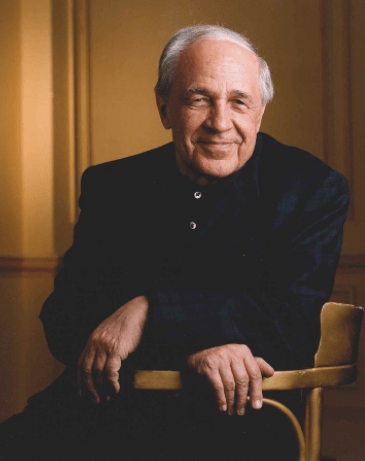About
Born in Montbrison in the Loire department of France, the son of an engineer, Boulez studied at the Conservatoire de Paris with Olivier Messiaen, and privately with Andrée Vaurabourg and René Leibowitz. He began his professional career in the late 1940s as music director of the Renaud-Barrault theatre company in Paris. He was a leading figure in avant-garde music, playing an important role in the development of integral serialism (in the 1950s), controlled chance music (in the 1960s) and the electronic transformation of instrumental music in real time (from the 1970s onwards). His tendency to revise earlier compositions meant that his body of work was relatively small, but it included pieces regarded by many as landmarks of twentieth-century music, such as Le Marteau sans maître, Pli selon pli and Répons. His uncompromising commitment to modernism and the trenchant, polemical tone in which he expressed his views on music led some to criticise him as a dogmatism. Alongside his activities as a composer, Boulez was one of the most prominent conductors of his generation.
In a career lasting more than sixty years, he was music director of the New York Philharmonic and the Ensemble intercontemporain, chief conductor of the BBC Symphony Orchestra and principal guest conductor of the Chicago Symphony Orchestra and the Cleveland Orchestra. He made frequent appearances with many other orchestras, including the Vienna Philharmonic, the Berlin Philharmonic and the London Symphony Orchestra. He was known for his performances of the music of the first half of the twentieth century—including Debussy and Ravel, Stravinsky and Bartók, and the Second Viennese School—as well as that of his contemporaries, such as Ligeti, Berio and Carter.
His work in the opera house included the Jahrhundertring—the production of Wagner’s Ring cycle for the centenary of the Bayreuth Festival—and the world premiere of the three-act version of Alban Berg’s Lulu. His recorded legacy is extensive. Boulez also conducted in the opera house. His chosen repertoire was small and included no Italian opera. Apart from Wagner, he conducted only twentieth-century works. Of his work with Wieland Wagner on Wozzeck and Parsifal, Boulez said: “I would willingly have hitched, if not my entire fate, then at least a part of it, to someone like him, for [our] discussions about music and productions were thrilling.”
They planned other productions together, including Salome and Elektra, Boris Godunov and Don Giovanni. However, by the time rehearsals for their Bayreuth Parsifal began Wieland was already gravely ill and he died in October 1966.
When the Frankfurt Wozzeck was revived after Wieland’s death, Boulez was deeply disillusioned by the working conditions: “there was no rehearsal, no care taken over anything. The cynicism of the way an opera house like that was run disgusted me. It still disgusts me.”

